They used to say ‘the sun never sets on the British Empire’; perhaps they now say ‘the sun never sets on British expats, they seem to get everywhere’. Brits are a prodigious bunch of globetrotters; it’s estimated by the World Bank that up to 5.5 million Brits live abroad.
That’s a whopping 8% of the British population living somewhere other the UK. Compare that to just 0.8% of Americans living overseas or 2.1% of Australians.Politicians in the UK have spent much of the last year arguing furiously about a supposed influx of immigrants moving into the country. Perhaps they should be more concerned about the battalions of Brits moving out, an estimated 323,000 in 2014 alone.
This represents a possible ‘brain drain’, whereby the country’s brightest and best are being poached by countries around the world, being offered employment and lifestyles that just aren’t available in the UK. About 56% of people leaving the UK in 2014 did so looking for work.
But where exactly are all these Brits heading? There are some parts of the world that are more popular than others. We’ve taken a look at statistics, reports and expat experiences to work out the ten most popular destinations for Brits living abroad.
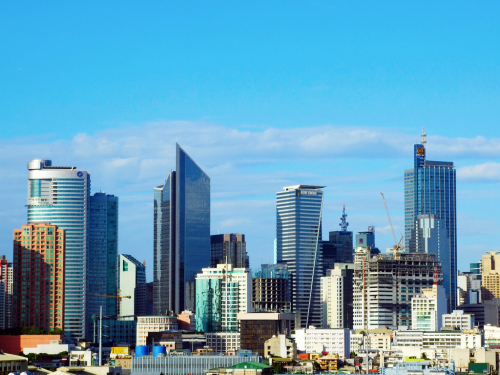
An estimated 42,000 Brits are settled in the Philippines, perhaps attracted by the friendliness of the Filipinos themselves or the tropical climate.
Consisting of an archipelago of over 7,000 islands, the country basks in a tropical climate that gives its people a laid-back approach to live. Family life comes first and foremost in the Philippines, but they extend a friendly welcome to foreigners.
Consequently much of the country’s culture is a blend of others. A close relationship with America is evident in fashion and widespread English, but a proud Catholic identity is a legacy of Spanish colonial days.
There’s a large number of retirees looking to enjoy the beaches and warm sun, making the most of one of Asia’s lowest costs of living and stretching the pension to full effect. There are also plenty of working expats doing business in the Philippines.
Manila is the bustling centre of the working world for busy Filipinos; the biggest business, universities and government departments are all based in the capital. The city is a good bet for expats too, with English speakers, English tutors and business experts in demand. A surprising number of expats find their work through informal networking with friends; a personal recommendation counts for much in the Philippines.
The nation has recently seen a period of economic growth; if this continues, expect to see more expats heading to the Philippines.
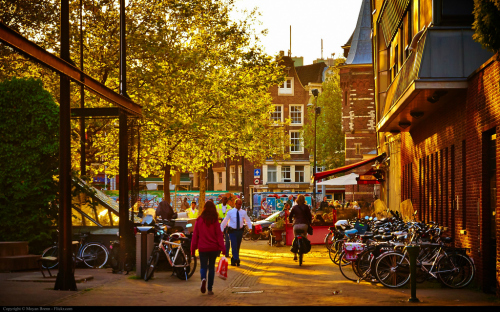
The Netherlands has one of two stereotypes: one is a quaint country of bike-riding, clog-wearing, friendly people riding bicycles past fields of tulips and the occasional windmill. The other stereotype is a beer-loving, pot-smoking party nation that loves its drugs, pornography and prostitution.
The beauty of the Netherlands is that there is room for both in this small country. The Dutch are proud of how liberal and permissive their nation is, but also believe in respecting others and their beliefs. There’s no problem if expats want to join the party, or are too shy to get stuck in; the Dutch are happy to respect your views.
This may be one reason why 46,000 Brits are currently living in the Netherlands. Most Dutch people speak near-fluent English and are happy to accommodate monolingual expats, but be ready for the Dutch ‘say it like it is’ attitude.
The Netherlands might not be the cheapest place to live: expensive rent and health insurance can take a big bite out of your paycheck. That said, there are tax incentives offered to expats fitting certain skills criteria.
Possibly the biggest draw for expats is the Dutch take on work-life balance. Employers want a happy workforce and can be flexible regarding hours, working from home or sabbaticals.

Germany has become a dominating player on the European stage in recent years. Not only did it fare well through the financial crisis, but its economy became one of the world’s strongest under Angela Merkel’s leadership.
Whilst the Germans have a reputation for hard-working efficiency, they actually work fewer hours each week than their British or American counterparts. And they make the most of their free time, holding hobbies and sports as an essential part of life, joining clubs and teams at a fearsome rate.
There seems to be a long line of Brits waiting to join the Germans: 155,000 of them to be exact. The job market for expats can be tough, but with the right skills in business, technology or science, lucrative work can be found.
The cost of living can be higher than in many European countries thanks to high taxes subsidising an impressive infrastructure. Most employers will offer a salary to take this into account, as well as the mandatory health insurance all residents need.
Employers may also help find accommodation, which will be a blessing as only 10% of Berliners own their own home and the rental market can be expensive.
Germany is not for everyone. The nation holds organisation and order in high regard, with rules and restrictions governing many details of life. These are a serious business and even ‘bending’ the rules might meet with disapproving looks or reprimands from strangers.

France can be a tough place to work. Bosses expect a serious commitment to jobs; a ‘live to work’ attitude that has turned France into the sixth largest economy in the world and made Paris the most profitable city in Europe.
That’s not to say that expats should steer clear of working in France, in fact Paris’ workforce relies on foreign residents for 20% of its workforce. But it may be that the majority of the 173,000 Brits are seeking a slower pace of life.
Expats falling for France tend to be older and intending to stay for the long haul in rural destinations. Sleepy rural villages with cobbled streets, ivy-clad chateaux and some tasty local wine are the retirement destination of choice for many Brits.
Who could say no to a glass of red, a platter of cheeses and a lazy afternoon watching the world go by as a way to spend retirement?
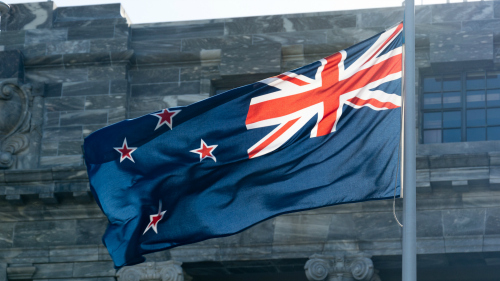
New Zealand is about as a far away from the UK as you can get before you start coming back on yourself.
There are 268,000 Brits making their home in the Middle Earth landscape made famous by the Lord of the Rings films. But life on the islands is far from a perfect fantasy. The income levels are much lower than in the UK and many homes are without mains water or electricity. There’s no national health service, with patients charged for ambulances, medicines and surgery.
The North Island can experience tropical heat, whilst the South Island freezes in Antarctic blasts, and the need to ship in supplies drives up prices of every consumer product.
But it’s not all bad. New Zealand has one of the lowest population densities of a developed nation, leaving the dramatic landscape utterly untouched. The taxes paid are much lower and there is a great emphasis on enjoying life.
Kiwis are famously sports mad. Expats can expect to be swept away in rugby-mania to become ardent netball fans, whilst hiking, surfing, snowboarding and bungee jumping appeal to the adrenaline junkies.
Family life is important to Kiwis, which seems to be a big draw for Brits. The Silver Fern visa, available since 2011, gives expats nine months to look for work and two years once employed to apply for permanent residence.
Brit Michaela Samson moved to New Zealand with her young family. She told The Telegraph, “If I was young, free and single I probably wouldn’t be moving to New Zealand but would stay in London. But once you start a young family then countries like Australia and New Zealand become more appealing.”

Britain’s closest neighbour has long sent its sons and daughters across the Irish Sea, receiving a certain number of Brits in return. When the Celtic Tiger was roaring during the economic boom of the early 2000s, a trickle of Brits became a flood.
Even now, when the Irish economy is whimpering rather than roaring, the Emerald Isle is home to 397,000 British expats. This is partly thanks to a host of multinational companies that set up in Ireland in the good years to make the most of generous tax breaks.
These companies stayed and are once again bringing over talent from Britain, and the rest of the world, to boost the economy.

Much like Ireland, Spain took a body blow during the economic crisis. But one area that never slowed down was the number of tourists heading to the Costa Del Sol.
The sunshine and margaritas of Spain appeal to generations of holidaying Brits, but there are also a large number of visitors that don’t intend to leave anytime soon.
Retirees make up a significant portion of the 411,000 Brits living in Spain. This number may be even higher as some older residents may stay registered in the UK to retain access to the NHS and state pension.
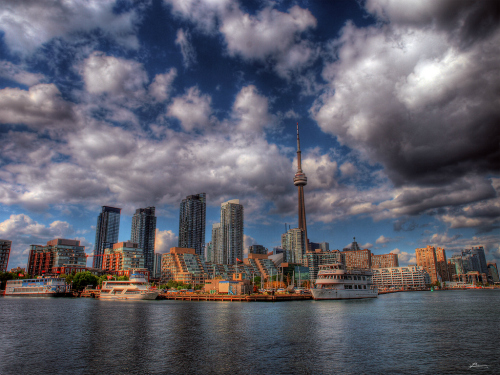
With one of the lowest crime rates in the world, a great healthcare system and a high standard of living, Canada has attracted over 675,000 Brits.
Canada might not have the glamour of its glitzy neighbour America, but Brits seem drawn to Canada’s welfare state and low crime rates.

The Statue of Liberty is inscribed with the words “give me your tired, your poor, your huddled masses.” Instead Britain has sent some of its brightest and best.
The USA is the most popular destination for Brits studying abroad and those working long-term in science and business. Among the 701,000 Brits who go Stateside, a high proportion go to pursue highly qualified employment.
Some of these stay for far longer than the average term. Medical and science researchers sometimes stay for 12 years in the Boston area, as opposed to just one or two years for business people in New York.
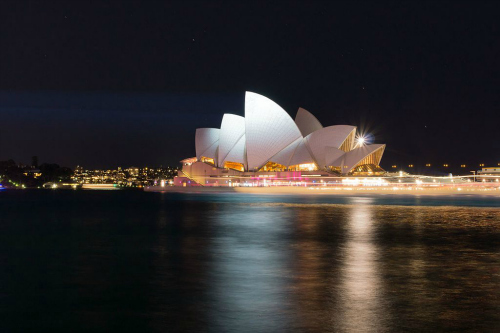
Brits head to the Land Down Under in their droves. Over 1.2 million ‘Poms’ have upped sticks and set up again in Australia, enjoying a country that is familiar yet different.
Australia’s colonial past means it shares much of its history with the UK, and many of its quirks. Aussies and Brits alike love cricket, rugby, barbecues and beer. With a climate more conducive to all those, Australia is quite a draw for Brits.
Another pull factor may be the strength of the Aussie economy. With a strong basis in mining and primary industry Australia was able to weather the financial storm in 2008, keeping a fairly even keel. The economy might not be booming as loudly as it was, but it still offers plenty of opportunities for expat employment.
Almost of all the Brits heading Down Under intend to remain for more than four years, but almost as many said they only intended to stay for one or two years. These numbers suggest that there is a large number of Brits heading to set up permanently in Australia, but almost an equal number seeking to live and work in the country before returning home.
It’s easy to understand the appeal of Australia. The work-life balance in most Aussie offices is much better than in the UK; it’s not unusual for bosses to chase staff out of the office at quitting time as everyone heads out for some well-deserved down time.
And down time is all too easy for a beachside nation. Nearly all Australians live on the coast, making the most of warm summers on the sand or playing any of the sports the country is obsessed with.
Australia also has a wide variety of landscapes to be explored. The massive continent isn’t just surf and cityscapes; there are mountains, rainforests, deserts and grasslands to explore.
Article by Andy Scofield, Expat Focus International Features Writer

